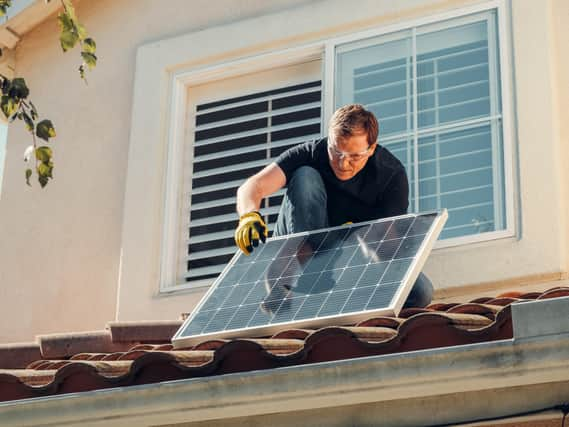OPINION: Planning for our carbon free future - Tim Larner, Zero Carbon Harrogate


Why does it take so long and cost so much to get planning permission; why are there so many seemingly irrelevant questions to be answered; why is extra work always required after making the application?
But the way in which our communities develop needs to be regulated so that the places where we live are enhanced whilst protecting the areas of countryside around them.
Advertisement
Hide AdAdvertisement
Hide AdYou may not agree with the way that the Harrogate Borough Council is doing this, required by national government to plan for vast areas of new housing across the district, but at least we should be ensuring high quality communities and care for the environment.
And this is where the failure is greatest.
The really good policies embedded in our Local Plan to tackle climate are not being applied to limit rising world temperatures, protect biodiversity and adapt to climate changes we are already experiencing.
The soon-to-be-published West of Harrogate Parameters Plan is a case in point.
Local Plan policies are duly noted, but not applied in the emerging Masterplan.
Advertisement
Hide AdAdvertisement
Hide AdWhere are the opportunities to embed local energy generation, to design low-energy housing to protect against rising fuel costs and summer over-heating?
What about a radical new approach to reducing the impact of cars?
What are the carbon impacts of the whole development of up to 4,000 homes?
Answers to these questions are all missing in the draft recently discussed with local interest groups.
Advertisement
Hide AdAdvertisement
Hide AdYou may like or loathe Tesco’s plans for a new supermarket off Skipton Road.
But at least their new planning application includes a full energy strategy that considers the operational impacts of the store.
And it comes up with building standards better than those required by Government regulations.
They propose extra insulation, the use of heat pumps to warm the building, and recovery of heat by-products from fridges and freezers.
Advertisement
Hide AdAdvertisement
Hide AdOf course, this will save money and support profitability - they have an incentive to limit operational costs.
House builders do not; they sell and move on.
They have no interest in the costs that buyers will pick up, nor the carbon footprint of their products over a century or more ahead.
Zero Carbon Harrogate and others are not asking for state-of-the-art science, just the application of well-proven methods supported by tried and trusted technology: houses that face the sun and are heated by it whilst incorporating summer shading, use of heat pump technology and solar panels on the roof.
(I’ve not seen a single house under construction in Harrogate being built with these – it’s a travesty!)
Advertisement
Hide AdAdvertisement
Hide AdWe will need to retrofit most of our housing stock over the coming decades to reduce energy use (more about this in our next column) so why not build low-energy housing in the first place?
As we adapt to life without the internal combustion engine, why not encourage shared electric cars within new communities.
Those of us who have had the opportunity to holiday at Center Parcs learned to live without cars for a short while and enjoyed the benefits, why not try something similar here?
Instead of complaining about the planning system, let’s use it to build a low-carbon future for our communities.